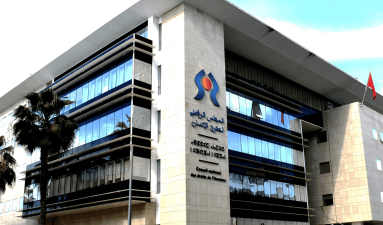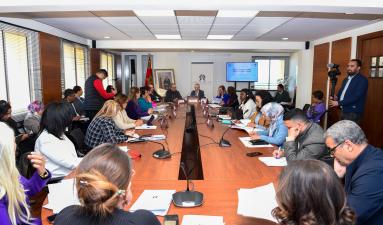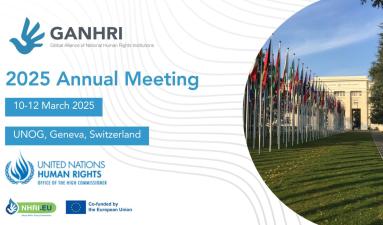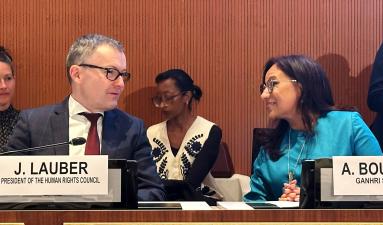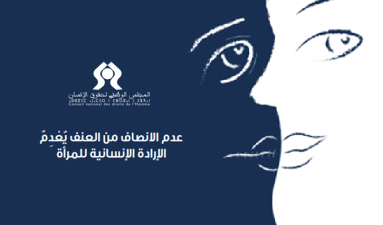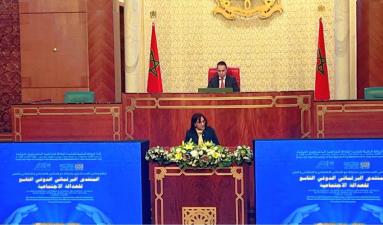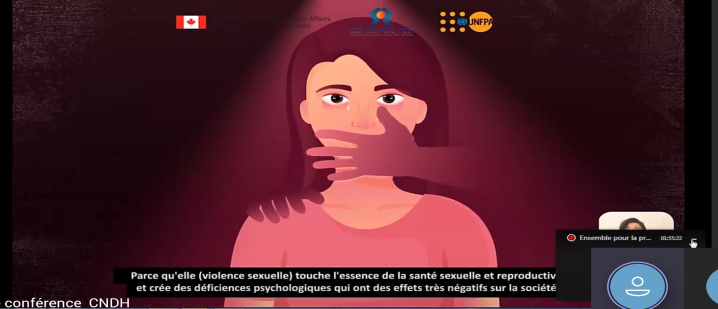
Inequalities in access to health of women and girls are not only the result of a lack of infrastructure or human resources but also the consequence of a lack of will to guarantee half of the population the full exercise of their rights, particularly sexual and reproductive.
These quotes were delivered by Ms. Amina Bouayach, Chairperson of the National Human Rights Council (CNDH), at the opening session of the videoconference “Together for the promotion and protection of sexual and reproductive health rights”. This online conference was organized, on Monday, December 7, 2020, by the CNDH and the United Nations Population Fund-Morocco (UNFPA-Morocco), with the financial support of the Embassy of Canada, as part of the UN's “16 days of activism against gender-based violence”.
Mr. Luis Mora, Representative of UNFPA-Morocco, and Ms. Nell Stewart, Ambassador of Canada, representatives of UN agencies, experts, specialists, and civil society actors, etc., participated in the opening session of this event.
Ms. Bouayach said that the aforementioned inequalities in access should not be measured only by the economic and social impacts. But, above all, they should be addressed as a direct threat to health, physical integrity, and the lives of women and girls.
The response should not be only political and legislative, but also cultural, educational and social to ensure its effectiveness, she underlined.
Ms. Bouayach also declared that only an inclusive approach combining efforts of different actors and the adoption of holistic approaches to strengthening the effectiveness of rights will make it possible to face it.
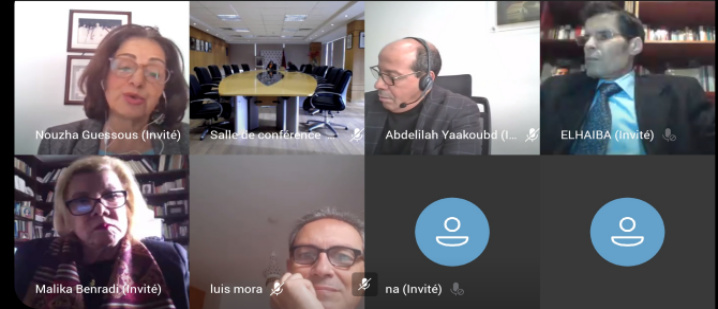
At this constructive debate, participants revealed that not only the lack of means which limits the access of women and girls to their right to sexual and reproductive health but also the socio-cultural perception which still surrounds this subject.
In addition to the harmonization of the national legal arsenal with the international instruments, participants recommended rethinking the subject of sex education that is proved to be more and more necessary. They also called for disseminating information among different categories using all appropriate means of communication. Furthermore, stakeholders underlined the importance of providing enough information on means to access services and care, and informing victims of available mechanisms and remedies.
This meeting was also an opportunity to present the guide on the right to sexual and reproductive health elaborated by the CNDH and the UNFPA-Morocco. This guide will be available in Arabic-Darija, Amazigh, sign language, and French. It will also be promoted by launching three awareness-raising videos on sexual and reproductive health rights, relevant risks and available redress mechanisms.
This guide is intended to be a practical tool providing actors and public opinion with precise information and relevant recommendations on a set of themes and sub-themes relating, mainly, to international human rights instruments and their connection with sexual and reproductive health.
It should be noted that this meeting is part of the partnership agreement signed between the CNDH and the UNFPA-Morocco in April 2020. It aimed at strengthening advocacy for combating child marriage, promoting rights to sexual and reproductive health, and reinforcing the mobilization for the implementation of recommendations of international instruments related to this issue.

